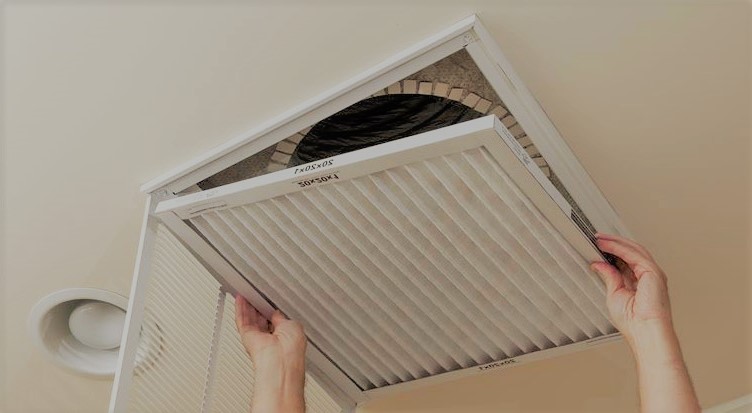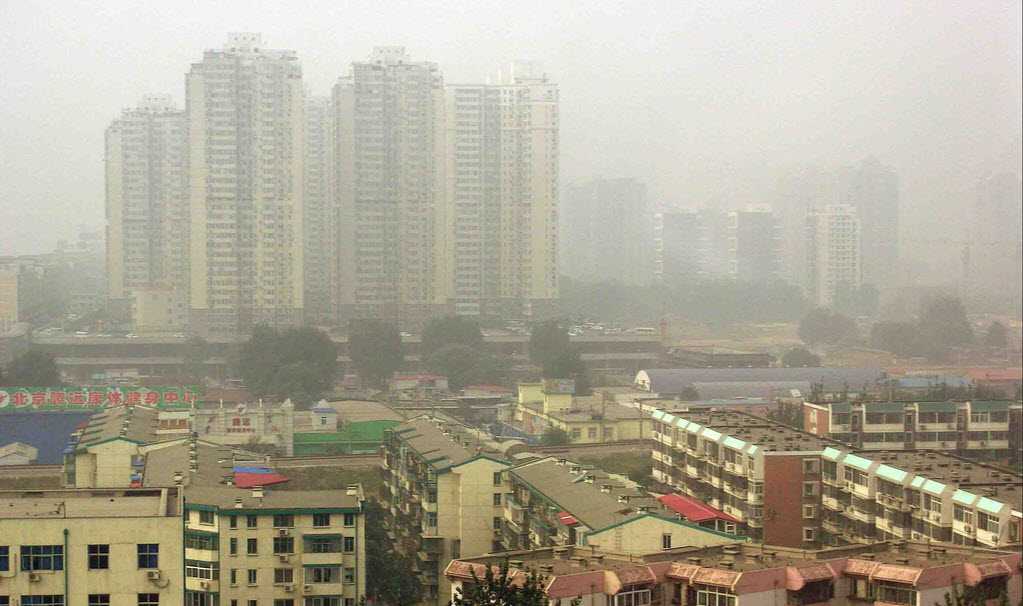
The air filter is an important part of your home’s heating and cooling system. Every central air conditioner or furnace will have a filter which cleans air before it enters the system. This filter is either disposable or washable. If you have a reusable air filter, use this replacement schedule as your cleaning calendar. Otherwise, use these guidelines to help you know when to dispose of your old filter and insert a new one.
What Does an Air Filter Do?
The air filter in your home’s heating and cooling system is responsible for cleaning the air that’s circulating through your home. Before the air is heated or cooled, the system pulls it through this filter. Here, small pieces of dust and debris are captured. Depending on the type of air filter that you have, it may even capture bacteria and viruses. According to the World Health Organization, 3.8 million premature deaths annually – including stroke, ischemic heart disease, chronic obstructive pulmonary disease (COPD) and lung cancer – are linked to contaminated air in the home. Some of the hazards that an air filter can grab include:
- Dirt
- Dust mites
- Mold spores
- Bacteria
- Microorganisms
- Lint
- Hair
- Animal fur
- Pollen
- Smoke
- Dander
When you’re using a heating and cooling system, air is regularly circulated throughout the home. However, you don’t need to have the heat or air conditioning on to enjoy the benefits of your home’s air filter. Your thermostat should also have a “fan” setting on it. If you turn on the fan, you will pull air continuously through the filter even if you’re not adjusting your home’s temperature.
The fan setting is not the most energy efficient option. In general, filtering the air while heating and cooling is adequate. However, you may want to use the fan for a brief period if:
- The home has been unoccupied for a while and has a stale feeling
- You’re cleaning and stirring up a lot of dust that you want to pull from the air
The weather is mild, and you haven’t needed heating or air conditioning for several days

What Types of Air Filters Are Available?
There are many different types of air filters that you can choose from. Most feature a filtration material made from spun fiberglass, cloth, or paper. Air filters come with a MERV rating, which tells you how well they work. Here are the basics on MERV ratings:
- MERV up to 4: Captures up to 80 percent of airborne particles that are larger than 10 pm in size. These are typically made from fiberglass, synthetic materials, or aluminum mesh. They offer minimal filtration, typically capturing dust, pollen, and fibers.
- MERV 5 to 8: Captures between 80 and 90 percent of airborne particles down to 3.0 pm in size. These are made from a cotton-polyester blend when disposable. Cartridge filters in this category feature a coated cube or pocket design made from a synthetic material. These capture finer particles such as hair spray and pudding mix.
- MERV 9 to 12: Captures over 90 percent of particles as small as 1 pm in size. These can trap legionella, lead dust, and auto emissions. They’re made from microfine fiberglass, synthetic material, or paper.
- MERV 13 to 16: Captures over 98 percent of particles as small as 0.3 pm in size. This includes tobacco smoke and bacteria. These filters are typically reserved for hospitals and some commercial facilities. They’re made from paper media or microfine fiberglass or synthetic materials.
The best option for your home is a filter with a MERV rating between 9 and 12. Read on to learn more about which filter to choose and when to change it.
When to Change Air Filters in the Average House
A general rule of thumb for the average family is a scheduled filter change every 90 days. This rule applies to you if:
- You live in your home full-time; this is not a vacation property
- You do not have pets
- No one in your family has severe allergies or asthma
If you fall into this category, you can probably get by with a filter that has a lower MERV rating. Stock up on four to six air filters a year and plan to change yours quarterly, or as needed. As a precaution, you should look at your filter monthly. If it’s visibly dirty, you may need to change it more often.
When to Change Air Filters if You Have Pets
If you have pets in your home, you should change your air filter more often to keep up with the increased amount of dander and fur. If you have just one pet, increase your filter changes to one every 60 days. Animal allergies affect 10 percent of people in the United States.
If you have multiple pets or a pet that sheds a great deal, you should change the filter every 20 to 45 days. Check the filter every week or two to see if it’s visibly dirty and change it when you can see the discoloration of buildup or dust and debris.
When to Change Air Filters if You Have Allergies
If someone in your family has allergies or asthma, you’ll want to err on the side of safety, and change the filter every 20 to 45 days. If you notice an increase in allergy and asthma symptoms in the house, this may indicate that your filter is starting to get clogged and needs a change. Based on the high asthma rates in the USA, (see below), anything that can aid in its suppression is welcome.
- 4 million adults aged 18 and over currently have asthma.
- 1 million children under age 18 currently have asthma.
You should opt for a filter with a higher MERV rating to accommodate anyone who has allergies or asthma. This will help you ultimately achieve much cleaner and more comfortable air in the home.
Special Circumstances Regarding Filter Changes
If you have a home that you don’t occupy regularly, such as a vacation home, you can typically get away with a filter change every six to 12 months. Consider popping a new air filter in as soon as you get to your vacation home, so you’ll enjoy the cleanest air possible during your stay. You can typically leave that filter in place until you return.
Changing your filter regularly is an important part of your home maintenance routine. Using the guidelines above, decide how often you need to change your air filter and make sure you factor this in to your schedule. Regular filter changes will help you enjoy healthy, breathable air throughout your home.
